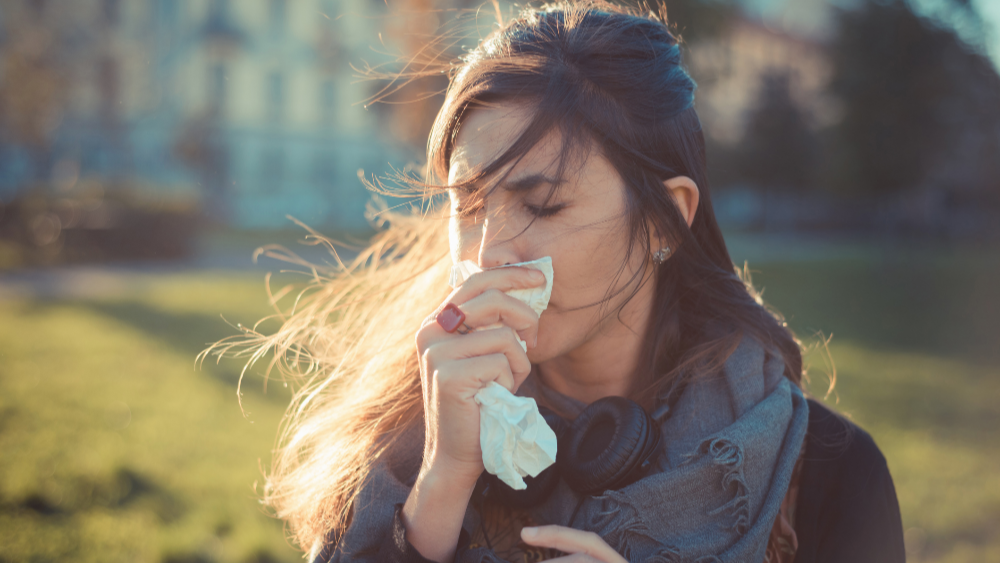
With all the viruses going around right now - think of the Coronavirus - you naturally want to do everything you can to prevent you from being felled too. We have collected 9 tips for you that can help you protect yourself against a similar virus. Are you ready for it?
Read also :'Your resistance is stronger than ever with these tips &tricks'
When you're sick, you carry a lot of germs and disease-causing pathogens on your hands. Fingernails and the skin between your fingers are the ideal place for all kinds of germs. Therefore, always wash your hands after going to the toilet, blowing your nose, coughing, gardening, touching animals and before eating. Use soap and water and work on your technique. Be thorough when soaping your hands, don't forget to wash well between your fingers and under your nails. Scrub for about 20 seconds, rinse and dry your hands.
It is best to wash your hands if possible. In situations where you do not have access to soap and water, it is best to use an alcohol-based hand sanitizer. Make sure it contains at least 60% alcohol for the best effect. Take a small bottle with you wherever you go so you can use it whenever you need it.
Viruses can enter your body through your eyes, nose, mouth and other entrances. Placing your dirty, contaminated hands on your face can therefore get you infected. Don't give the germs a chance and wash your hands before touching your eyes, nose and mouth. It also doesn't hurt to wash them before going to the toilet – and after, of course.
Is it obvious that someone has an infection? Then make sure you stay healthy by avoiding close contact with them. So avoid hugs, kisses and handshakes. If someone coughs and sneezes, step aside and explain that you don't want to get sick. Conversely, if you are not feeling well, stay at home and protect your friends and colleagues from whatever you have.
When you cough or sneeze, tiny droplets, consisting of thousands of viruses and bacteria, leave your body at a considerable rate. These can end up on surfaces, people and in the air. You can imagine that this is an effective way of spreading infections. Therefore, try to cough or sneeze in the bend of your elbow to prevent spreading. Does this not work? Then use a handkerchief to cover your mouth or use your own hand if there is no better alternative. Do you use a handkerchief? Then immediately throw it in the trash or flush it down the toilet and don't forget to wash your hands afterwards.
Use bleach or disinfectant spray to clean your kitchen and bathroom, the telephone, door handles and children's toys. Once you realize how quickly germs spread, you will begin to understand the importance of this step. Make sure that the bathroom and kitchen remain clean and disinfected!
Your best defense against infection is an active and healthy immune system. So make sure you do the following:
– Exercise:make sure your immune system gets a boost by exercising regularly. Aim for 30 to 40 minutes, about three to four times a week.
– Eat healthy:What you eat and drink are essential factors for immune function. Try to keep alcohol to a minimum to prevent vitamin deficiency and a lowered resistance.
– Drink enough:make sure you continue to drink enough water. Hydrated cells can fight infections better and flush toxins and bacteria from your body more easily.
It's no secret that stress isn't good for your health and can make you more prone to viral infections. Research shows that chronic stress increases the risk of infection. Use yoga and relaxation exercises to calm yourself. Try to share your problems with others. Talking to a friend or a professional can help you see things differently and may help relieve some of your stress.
Have you ever slept all day when you were sick? Sleep helps your body recover, reduces stress and is an essential survival mechanism. So make sure you get enough sleep, try to get eight hours. If you're not feeling well, give yourself as much sleep as your body needs.
Source: Womenshealthmag.com/uk